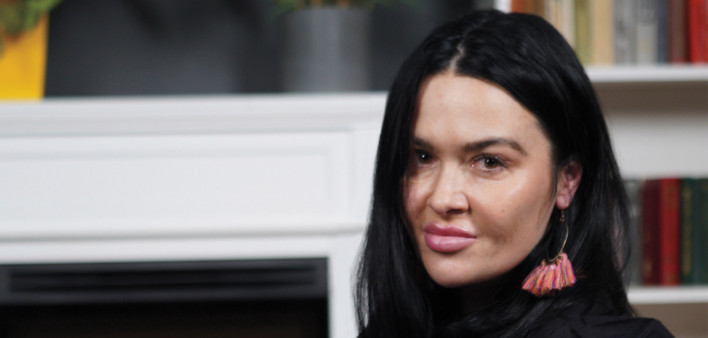Tatyana Lebed is a warrior. As the CEO and executive director of the All-Ukrainian Association of Women who Use Drugs, she works to protect her clients from HIV in a country ravaged by war.
Helping marginalized populations can be challenging in the best of times. But Lebed’s work with female drug users, some of whom engage in survival sex, got a whole lot harder when Russia invaded her country in February 2022. Russia has occupied parts of Eastern Ukraine since 2014, but its illegal full-scale attack in 2022 left Ukraine’s transportation and health care infrastructure severely compromised.
When it comes to addressing the needs of women who use drugs, Lebed draws on her own experience.
“I learned about HIV when I decided to become a participant in an opioid substitution therapy program in 2005,” Lebed tells POZ. “At that time, international organizations had only begun to carry out such interventions in Ukraine. People who inject drugs and live with HIV could receive opioid substitution therapy on the pilot project. I found out about my HIV-positive status during testing in 2005.”
Despite Ukraine’s increasingly Western-leaning sensibilities, Soviet-era laws governing drug policy remain on the books.
“In Ukraine, people who inject drugs are also a stigmatized population group,” Lebed says. “Ukraine is a patriarchal country, so the most stigmatized group are women who use drugs and live with HIV.”
What’s worse, drug use is on the rise in Ukraine, increasing the burden on harm reduction groups.
Lebed notes that “people who used to use light drugs or used them sporadically began to use drugs by injection during the war due to prolonged stress.”
Ukraine’s drug policy, Lebed says, was a work in progress when Russia’s full-scale invasion began.
“The strategy is currently under development,” she explains. “We have provided our suggestions.”

Tatyana LebedIgor Kuzmenko
Lebed also often works to change Ukraine’s punitive laws governing women and families.
“Unfortunately, there is a discriminatory article in the Family Code of Ukraine in which a woman can be deprived of her maternal rights solely because of a diagnosis of drug addiction, even when the woman is in remission,” Lebed says. “Our group is currently fighting for the rights of such women who use drugs.”
Lebed briefly considered emigrating to Germany after the invasion but reconsidered when she learned that her antiretroviral therapy wasn’t available in parts of Western Europe. “Now I’m in my place,” Lebed says. “I pay taxes and wait for victory at home, and I help those who cannot help themselves.”
And in her work helping others, she employs the same indomitable spirit with which the Ukraine Army has dueled its powerful neighbor to a stalemate.
“Russia has started an unjust war of occupation against Ukraine,” Lebed says. “However, we hold on and fight. We continue to provide HIV prevention and treatment services for people who use drugs. And we continue to implement reforms, even under fire.”







Comments
Comments